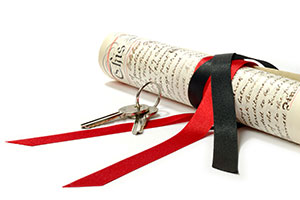Title Deeds in Thailand

Title Deeds in Thailand. When investing in Thai property, understanding title deeds is crucial. These documents guarantee your rights and ownership stake in the property. Here’s a breakdown of the different types of Thai title deeds and what they signify for property ownership:
The Importance of Title Deeds
A Thai title deed, also known as a Chanote, is essentially your proof of ownership for a piece of land. It guarantees your rights to use, sell, or lease the property. Unlike some countries, Thailand has various title deed types, each offering a different level of ownership security.
Types of Thai Title Deeds
-
Chanote (NS4): This is the most secure type of title deed in Thailand. A Chanote deed signifies full ownership of the land. Key features include:
- Issued by the Land Department
- Land accurately surveyed and plotted
- Marked by permanent boundary markers
- Offers the strongest legal protection
-
Nor Sor Sam (NS3) & Nor Sor Sam Gor (NS3G): These title deeds grant a right to possess the land, but not full ownership. They can be used for building a residence or other structures, but limitations might exist for selling or leasing the land. Upgrading an NS3 or NS3G title to a Chanote might be possible under certain circumstances.
-
Por Bor Tor (Por Bor Tor 5 or T.B.5): This is a certificate of possession issued by the government, but it doesn’t confer ownership rights. T.B.5 documents are most common in rural areas and can sometimes be upgraded to a Chanote title after meeting specific requirements.
Choosing the Right Title Deed
When considering a property purchase, investigate the title deed type. A Chanote deed offers the highest level of security and is generally preferred. However, purchasing land with an NS3 or T.B.5 title might be an option if you understand the limitations and plan to pursue an upgrade in the future.
Additional Considerations
- Legal Advice: Consult a qualified Thai property lawyer to verify the title deed’s validity and advise on potential restrictions associated with specific title types.
- Land Department Checks: Conduct due diligence by conducting land office checks to ensure the title deed is clear and there are no outstanding claims on the property.
- Foreign Ownership: Foreigners cannot own land directly in Thailand. However, they can explore options like leaseholds, usufructs, or holding property through a Thai company structure.
Conclusion
Understanding Thai title deeds empowers you to make informed decisions when buying property. By prioritizing a Chanote title and seeking professional guidance, you can secure your investment and enjoy the benefits of Thai property ownership with peace of mind.
Leave a Reply